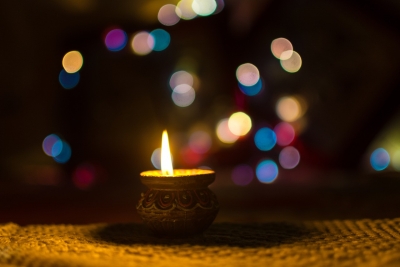
As the year inches its way to a close, there are many holidays to be celebrated. There are many that probably come to mind - Halloween, Thanksgiving, Christmas, Hanukkah, Kwanzaa. But there’s another major cultural holiday coming up: Diwali.
This year’s main Diwali celebration is on Sunday, November 12. If you don’t know much about Diwali, here’s a quick breakdown.
Diwali (also spelled as Divali) is one of the major religious festivals in Hinduism, Sikhism and Jainism. However, it is also celebrated throughout India, Singapore and several other South Asian countries as a national holiday.
Customs to observe the holiday differ between regions and cultures. In India, the holiday is typically celebrated over a five-day period, with the third day being the primary day of celebration. In many other countries, only the main day is celebrated.
The name Diwali derived from the Sanskrit word “dipavali”, which means “row of lights”. The holiday symbolizes the victory of light over darkness, so candles and hand-crafted oil lamps called diyas are lit to celebrate. These lamps are placed in rows everywhere, from temples to houses and set adrift into water. Houses are also decorated with rangoli, intricate patterns made of colored rice, sand or flower petals. Fireworks are also set off to both light up the night sky and ward off evil spirits.
Diwali is also a celebration of family and community. People will wear their best clothes, or buy new ones, and gather together to exchange gifts and eat special dishes and sweets. Gambling and card games are played to ensure good luck in the coming year.
You can check out photos from past Diwali events at YPL here.
Alison Robles is a part-time page at the Crestwood Library. She is an avid reader with a passion for YA lit, historical fiction and fantasy. A Yonkers native, she graduated from Iona University in 2020 with a dual-degree in Marketing and Public Relations. She is pursuing an MS in Information and Library Science from the University at Buffalo.
Encyclopedia Britannica and Almanac.com were used as sources for information about Diwali.